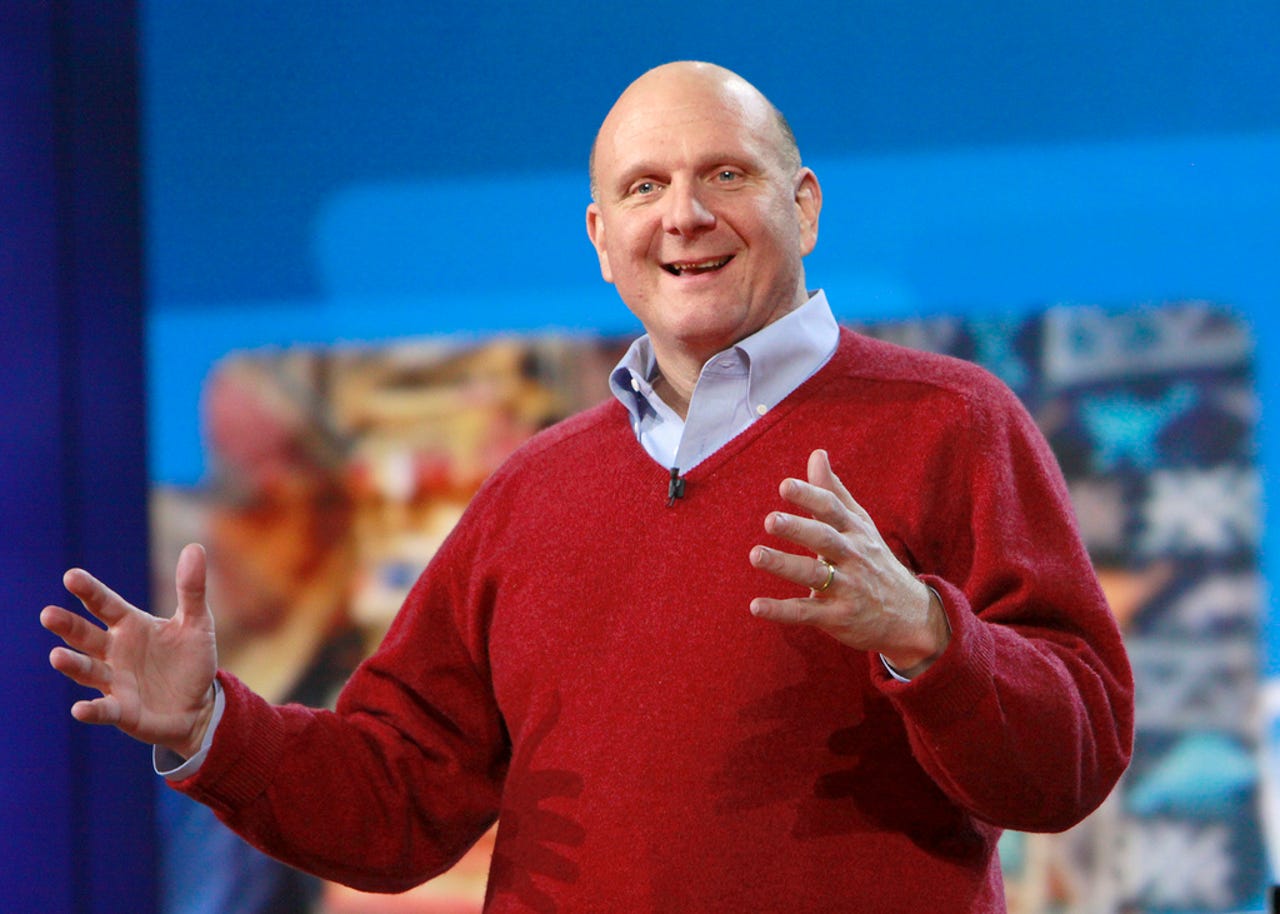Pour one out for Steve Ballmer


He was Microsoft's best salesman, from almost day one.
Unlike Apple's attractive wares, Microsoft never made products that visually sold themselves. They were functional, like a concrete highway or a water main. They were rarely, as the technology press so often likes to say, "sexy."
If Bill Gates was Microsoft's brain, Steve Ballmer was its mouth. And try like hell to move product he did. From his early days shouting at you on your couch (in, let's admit, a blazer that looked cut from said couch) to the later years when he took the stage at the Consumer Electronics Show as an elder statesman, clad in his signature oxblood sweater, to convince a cynical, youthful crowd that he was was worth paying attention to—even when he didn't have a "next big thing" to show off.
Read this
But what happens when people stop listening? Over the last decade, that's exactly what's happened. Ballmer's infectious optimism grew benign with investors and the public as he mistakenly laughed off Apple's iPhone in 2007, meekly conceded his company's mobile operating system "screw-ups" years after the rest of the industry did and, through it all, allowed fiefdoms to metastasize in his company with a corporate organizational scheme that remained largely the same from 2005 to 2013, seemingly a century at the speed at which the technology industry operates.
There's no doubt that Ballmer made strategic missteps, some of them critical to his company's success. (You could argue that in several cases he didn't make any strategic steps at all.) But he also served, until today's announcement of his retirement, as a rock of stability at a large company continually threatened by up-and-comers.
That Microsoft has been replaced by Apple as the world's most valuable technology company illustrates Ballmer's failings. That Microsoft remains the fourth most valuable company of any kind 38 years after its founding—and 13 years after founder Bill Gates handed over the reins—demonstrates that Ballmer has kept the Good Ship Gates running for far more smoothly than he's credited.
But his greatest asset may have been his undoing: trying to sell his own employees optimism for the future when they needed instead to soberly address the reality of their failings, change what enabled them, and move on.
Until the very end: "The strategy we have generated is first class," he wrote to employees in a memo announcing his retirement today. "Our new organization, which is centered on functions and engineering areas, is right for the opportunities and challenges ahead." Even without an heir apparent.